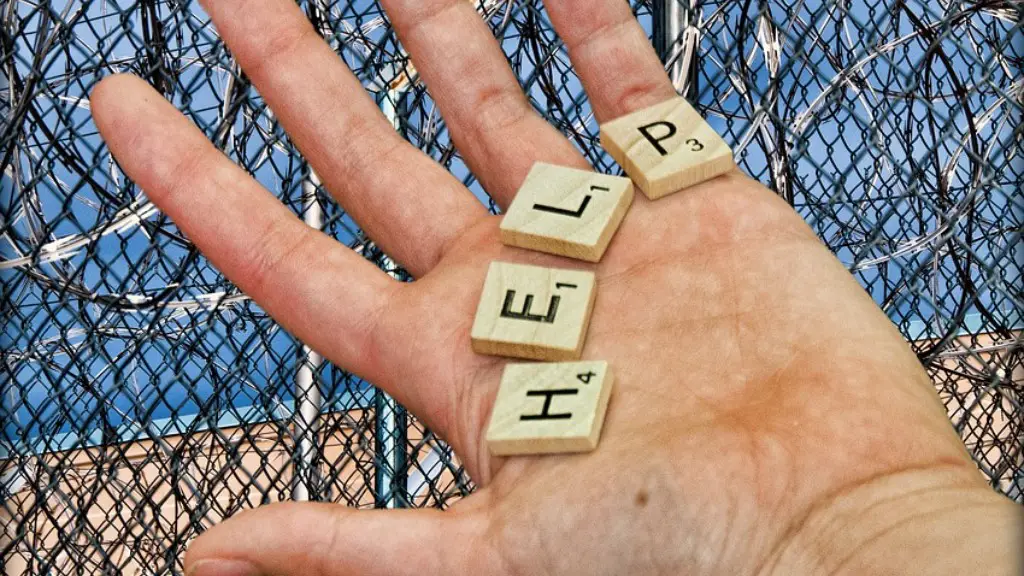There are many things that can help clear stress, but sometimes it can feel like nothing is working. This can be frustrating, but there are still things worth trying. Meditation, yoga, and deep breathing exercises are all great ways to help clear stress. If you can’t seem to find any relief, it may be time to talk to a doctor or therapist to see if there are other options.
There isn’t a one-size-fits-all answer to this question, as different things work for different people when it comes to clearing stress. However, some potential stress-busters include exercise, relaxation techniques like yoga or meditation, spending time in nature, aromatherapy, and listening to calming music. If nothing seems to be working, it may be helpful to consult with a doctor or therapist to explore other options.
How do you deal with extreme stress?
It’s important to find healthy ways to cope with stress in order to maintain your overall health and well-being. Taking breaks from watching, reading, or listening to news stories can help you to avoid getting overwhelmed by the constant stream of information. Taking care of yourself and your body is also crucial- make sure to schedule in time for relaxation and exercise. Talking to others can also be helpful in managing stress levels. Finally, avoid turning to drugs or alcohol as a way to cope with stress- this will only lead to more problems down the road.
Chronic stress can be tough to manage, but there are some things you can do to help. First, try to get active and get some exercise. This can positively affect your mood and help to reduce stress. Next, try some relaxation exercises like tai-chi or yoga. These activities may be outside of your comfort zone, but they can be really beneficial. Finally, take some time for yourself every day to relax and de-stress. This can be anything from reading a book to taking a bath. Don’t forget to take care of yourself!
Why do I keep stressing over nothing
Stress can be caused by a variety of factors, both internal and external. Internal factors include things like our own thoughts and emotions, while external factors can include things like our environment or the people around us. Stress is often a reaction to feeling like we’re losing control over something, but it can also be caused by things like anxiety or fear. When we’re feeling stressed, our body releases stress hormones like adrenaline and cortisol.
There are many different types of medications that can be used to manage stress. The most common ones are tranquilizers, beta-blockers, and selective serotonin reuptake inhibitors (SSRIs). Additional treatments may include acupuncture and herbal remedies.
What is a great stress reliever?
There are a few things you can do to help reduce stress in your life. Exercise, mindfulness, spending time with a pet, minimizing screen time, and getting outside more often are all effective methods. Try to incorporate some of these into your daily routine to help improve your overall psychological well-being.
The above-mentioned effects are some of the potential consequences of exposure to high levels of air pollution. Some of these effects can be quite serious, and it is important to be aware of them if you live in an area with high levels of air pollution. If you experience any of these effects, it is important to seek medical attention, as they could be indicative of a more serious problem.
What can extreme stress cause?
The natural stress response helps our bodies deal with emergency situations by releasing hormones that provide an energy boost and sharpen our focus. But when the stress response goes into overdrive, it can have harmful effects on our physical and mental health.
Anxiety, depression, digestive problems, headaches, muscle tension and pain, heart disease, heart attack, high blood pressure and stroke are all potential health problems that can be caused by chronic stress. Additionally, chronic stress can lead to weight gain.
If you’re dealing with chronic stress, it’s important to find ways to manage it. Some helpful ways to do this include exercise, relaxation techniques, and talking to a therapist.
Chronic stress can be debilitating, but there are strategies that can help. Mindfulness activities such as meditation and breathing exercises can help to reduce stress. Having a support system of family and friends, as well as a counselor or psychiatrist if needed, can also be helpful. If needed, a psychiatrist can prescribe medication to help reduce stress.
How long does it take to recover from stress
The recovery process after a mental health disorder can be long and difficult. You may be sensitive to stress for many years to come. It is important to take things slowly when returning to work or school. Being in a work or school environment can be challenging for your brain.
Foods that are rich in magnesium and zinc have been linked to lowered anxiety levels. This is because these nutrients are essential for the proper functioning of the nervous system. Foods that are rich in magnesium include leafy greens, such as spinach and Swiss chard, and legumes, nuts, seeds, and whole grains. Foods that are rich in zinc include oysters, cashews, liver, beef, and egg yolks.
What is the number one killer stress?
Stress is a major problem in our society and it can have serious implications on our health, including our risk of sudden cardiac death. This study shows that stress can be a major contributing factor to SCD, so it is important to manage our stress levels and take care of our heart health.
Making time for physical activity is important for managing stress and improving mental health. There are many different kinds of activities that can reduce your stress, so find something that you enjoy and make it a priority.
What is the biggest stress buster
There are many ways to reduce stress in your life. Connecting with friends and family, taking time for yourself, and challenging yourself are all great ways to reduce stress. Additionally, avoiding unhealthy habits, helping others, and working smarter can also help reduce stress. Finally, looking for the positives in life and accepting the things you can’t change are two more great ways to reduce stress.
If you experience any of the above physical signs, it may be an indication that stress is negatively impacting your health. Be sure to consult with a healthcare professional to rule out any other potential causes of your symptoms. Taking steps to manage your stress can help improve your overall health and wellbeing.
Can you go to the hospital for stress?
Stress can become a medical concern if it significantly affects a person’s function and way of life. If stress is causing physical symptoms that interfere with work or home life, it is best to seek medical help from professionals.
The signs and symptoms of stress overload can be memory problems, inability to concentrate, poor judgment, seeing only the negative, anxious or racing thoughts, and constant worrying. If you are experiencing any of these symptoms, it is important to take a step back and assess your current stress levels. If you feel that you are unable to cope with your stress, it is important to seek professional help.
Conclusion
“what clears stress nothing is working” is not a question, so there is no answer.
There are many things that can help clear stress, but if nothing seems to be working, it may be time to consult a professional. Stress can have a negative impact on both our physical and mental health, so it is important to find a way to manage it. A therapist can help you identify the root causes of your stress and develop a plan to address them. In the meantime, try to take some time for yourself each day to relax and do something you enjoy.





